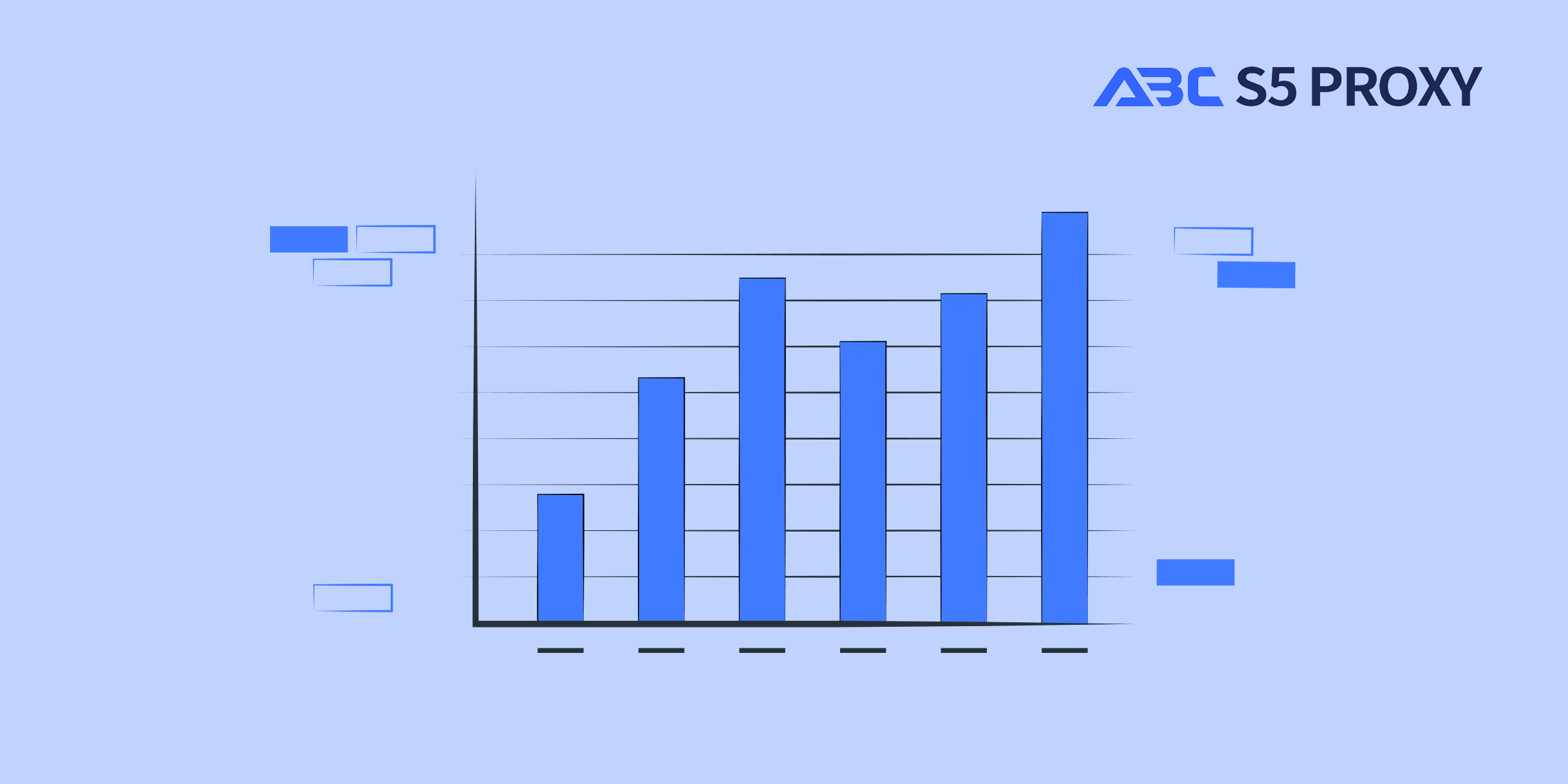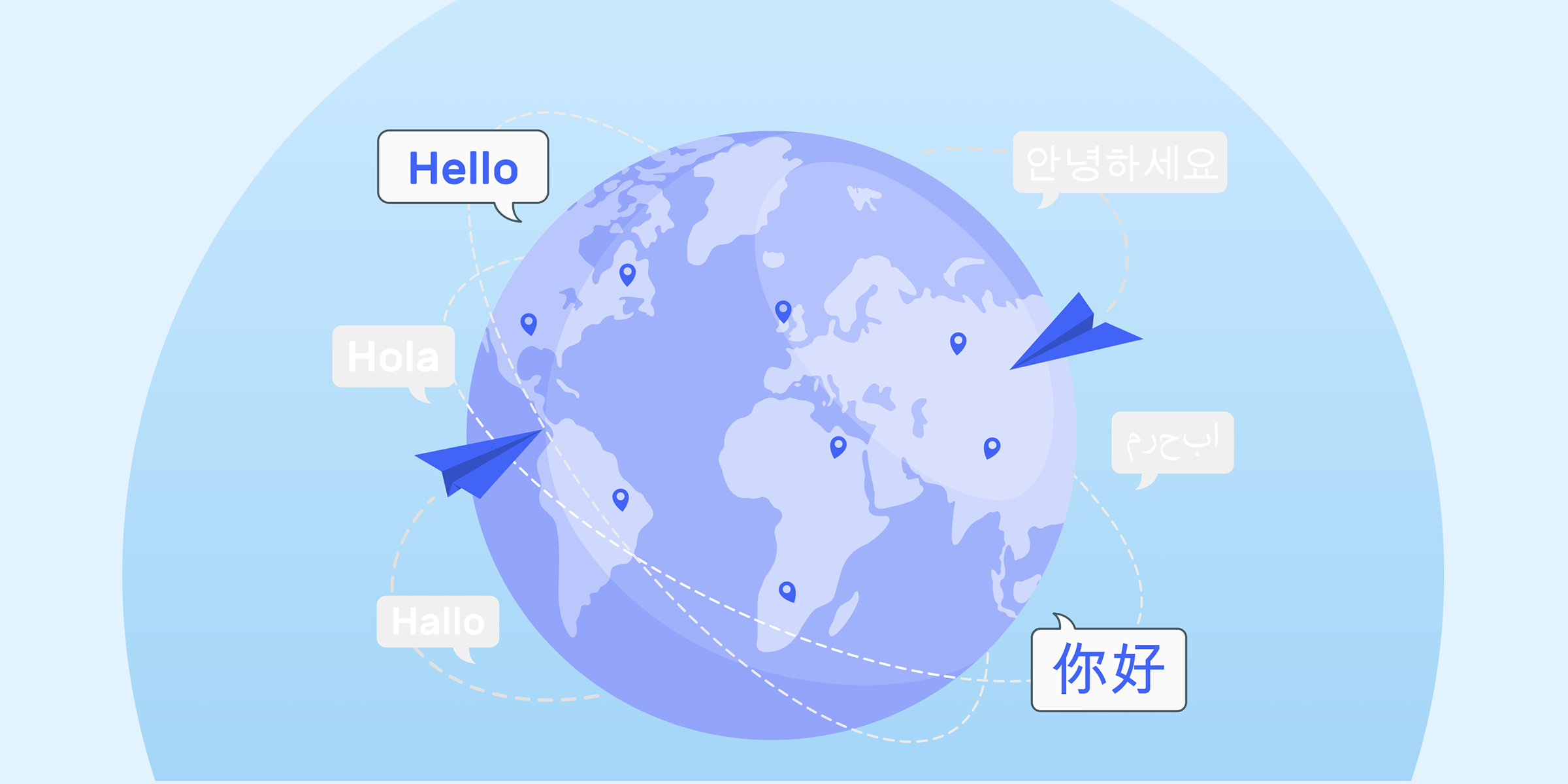Residential Proxies
Allowlisted 200M+ IPs from real ISP. Managed/obtained proxies via dashboard.

Proxies Services
Residential Proxies
Allowlisted 200M+ IPs from real ISP. Managed/obtained proxies via dashboard.
Residential (Socks5) Proxies
Over 200 million real IPs in 190+ locations,
Unlimited Residential Proxies
Unlimited use of IP and Traffic, AI Intelligent Rotating Residential Proxies
Static Residential proxies
Long-lasting dedicated proxy, non-rotating residential proxy
Dedicated Datacenter Proxies
Use stable, fast, and furious 700K+ datacenter IPs worldwide.
Mobile Proxies
Dive into a 10M+ ethically-sourced mobile lP pool with 160+ locations and 700+ ASNs.
Scrapers
Collection of public structured data from all websites
Top Scraping Targers
Proxies
Residential Proxies
Allowlisted 200M+ IPs from real ISP. Managed/obtained proxies via dashboard.
Starts from
$0.77/ GB
Residential (Socks5) Proxies
Over 200 million real IPs in 190+ locations,
Starts from
$0.045/ IP
Unlimited Residential Proxies
Unlimited use of IP and Traffic, AI Intelligent Rotating Residential Proxies
Starts from
$66/ Day
Rotating ISP Proxies
ABCProxy's Rotating ISP Proxies guarantee long session time.
Starts from
$0.77/ GB
Static Residential proxies
Long-lasting dedicated proxy, non-rotating residential proxy
Starts from
$5/MONTH
Dedicated Datacenter Proxies
Use stable, fast, and furious 700K+ datacenter IPs worldwide.
Starts from
$4.5/MONTH
Mobile Proxies
Allowlisted 200M+ IPs from real ISP. Managed/obtained proxies via dashboard.
Starts from
$1.2/ GB
Scrapers
Web Unblocker
Simulate real user behavior to over-come anti-bot detection
Starts from
$1.2/GB
Serp API
Get real-time search engine data With SERP API
Starts from
$0.3/1K results
Video Downloader
Fully automated download of video and audio data.
Starts from
$0.07/GB
Scraping Browser
Scale scraping browsers with built-inunblocking and hosting
Starts from
$2.5/GB
Documentation
All features, parameters, and integration details, backed by code samples in every coding language.
TOOLS
Resources
Addons
ABCProxy Extension for Chrome
Free Chrome proxy manager extension that works with any proxy provider.
ABCProxy Extension for Firefox
Free Firefox proxy manager extension that works with any proxy provider.
Proxy Manager
Manage all proxies using APM interface
Proxy Checker
Free online proxy checker analyzing health, type, and country.
Proxies
AI Developmen
Acquire large-scale multimodal web data for machine learning
Sales & E-commerce
Collect pricing data on every product acrossthe web to get and maintain a competitive advantage
Threat Intelligence
Get real-time data and access multiple geo-locations around the world.
Copyright Infringement Monitoring
Find and gather all the evidence to stop copyright infringements.
Social Media for Marketing
Dominate your industry space on social media with smarter campaigns, anticipate the next big trends
Travel Fare Aggregation
Get real-time data and access multiple geo-locations around the world.
By Use Case
English
繁體中文
Русский
Indonesia
Português
Español
بالعربية

Title: Technical Comparison of Web Crawling and Scraping with Proxy
Web crawling and web scraping are both techniques used to extract data from websites, but they serve different purposes and are implemented in different ways. In this blog post, we will explore the technical differences between web crawling and web scraping, and discuss how the use of proxies can enhance the effectiveness of these techniques.
Web crawling is the process of systematically browsing the internet to index and collect information from websites. It involves the use of algorithms to follow links and discover new content on the web. Web crawlers, also known as spiders or bots, are commonly used by search engines to build their databases of web content. Crawlers are programmed to visit websites, download their content, and index the information for future retrieval.
On the other hand, web scraping is the process of extracting specific data from websites for analysis or storage. Scraping involves parsing the HTML of a webpage and extracting the desired information, such as product prices, news articles, or contact details. Scraping is often used for competitive analysis, market research, or data aggregation.
Both web crawling and web scraping have their own set of challenges and limitations. Web crawling can be resource-intensive and may face obstacles like restrictions set by websites through robots.txt files. Web scraping, on the other hand, may encounter issues like dynamic content loading or anti-scraping measures implemented by websites.
When it comes to implementing web crawling and web scraping, both techniques can benefit from the use of proxies. Proxies act as intermediaries between the user's device and the websites being accessed, masking the user's IP address and providing anonymity. This is particularly useful when scraping websites that impose restrictions on the number of requests from a single IP address, or when crawling websites that block certain IP ranges.
Proxies can also help distribute the load of web crawling and scraping activities across multiple IP addresses, reducing the risk of detection or being blocked by websites. By rotating proxies during web scraping or crawling sessions, users can avoid being flagged as suspicious or triggering anti-scraping mechanisms implemented by websites.
In conclusion, web crawling and web scraping are powerful techniques for extracting data from the web, each with its own unique applications and challenges. By utilizing proxies, users can enhance the effectiveness of these techniques, improve their data collection capabilities, and overcome limitations imposed by websites. Proxies play a crucial role in ensuring the success of web crawling and web scraping projects, providing users with the necessary tools to navigate the complexities of the internet and extract valuable insights from online sources.
Featured Posts
Popular Products
Residential Proxies
Allowlisted 200M+ IPs from real ISP. Managed/obtained proxies via dashboard.
Residential (Socks5) Proxies
Over 200 million real IPs in 190+ locations,
Unlimited Residential Proxies
Use stable, fast, and furious 700K+ datacenter IPs worldwide.
Rotating ISP Proxies
ABCProxy's Rotating ISP Proxies guarantee long session time.
Residential (Socks5) Proxies
Long-lasting dedicated proxy, non-rotating residential proxy
Dedicated Datacenter Proxies
Use stable, fast, and furious 700K+ datacenter IPs worldwide.
Web Unblocker
View content as a real user with the help of ABC proxy's dynamic fingerprinting technology.
Related articles

WhatsApp Account Comparison: Personal vs Enterprise - How to Choose Wisely
Wondering how to choose between WhatsApp personal account and enterprise account? This blog will guide you on the differences and help you make the right decision.